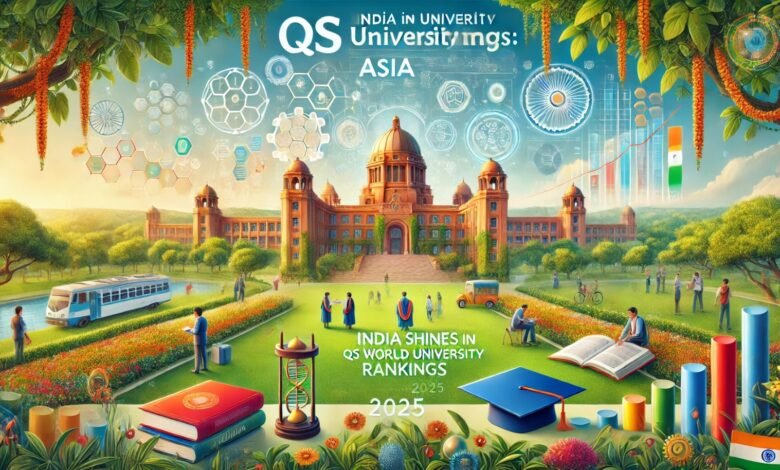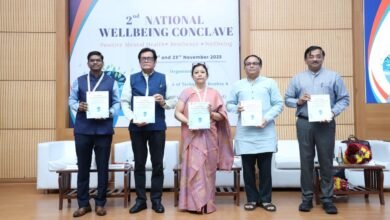India’s rising stars: IIT Delhi leads in QS Asia Rankings 2025
By Doruvu Paul Jagan Babu:Bureau Chief

New Delhi: India’s universities are making significant strides in the QS World University Rankings: Asia 2025, with notable advancements across academic, research, and internationalization metrics. This year, two Indian institutions, the Indian Institute of Technology Delhi (IITD) and Indian Institute of Technology Bombay (IITB), have achieved placements in the top 50, underscoring India’s growing prominence in Asian higher education.

India’s climb in the rankings
India demonstrated strong regional standing in Southern Asia, with seven institutions ranking among the top ten in the region. IIT Delhi led Indian institutions at 44th place, closely followed by IIT Bombay at 48th. Both institutions achieved impressive employer reputation scores, with IIT Bombay scoring 99.5% and IIT Delhi close behind at 99%. Institutions such as IIT Guwahati, IIT Roorkee, Jawaharlal Nehru University, Chandigarh University (120), UPES (148), and Vellore Institute of Technology (150) highlight the depth of quality education.
Strong performance across metrics
The rankings measure 984 institutions across 25 countries, employing 11 performance metrics. Indian universities showed strength particularly in ‘Papers per Faculty’ and ‘Staff with PhD’, demonstrating a balance of research productivity and teaching quality. Anna University scored a perfect 100 in ‘Papers per Faculty’, while 15 Indian institutions achieved scores over 99% in ‘Staff with PhD’.

Institutions on the rise
Among India’s top performers, IIT Madras ranked 56th, IIT Kharagpur 60th, and the University of Delhi 81st. UPES in Dehradun marked the highest year-over-year rise for an Indian institution, climbing 70 places to 148th, driven by improvements in its ‘International Research Network’ and ‘Citations per Paper’.
Expanding global footprint
India’s representation in the QS Asia Rankings has increased dramatically over the past decade, with 46 institutions featured in 2025 compared to only 11 in 2015. This growth signals India’s commitment to fostering academic excellence and raising global standards. North Eastern Hill University and University of Agricultural Sciences, Bangalore, both achieved a perfect score in ‘Faculty-Student Ratio’, highlighting their focus on personalized education.
Commitment to research and education excellence
With IIT Delhi’s leadership at 44th place, India’s educational landscape reflects the nation’s drive toward research excellence and faculty quality. As Indian universities continue to scale the QS Rankings, the country’s commitment to advancing higher education makes it a formidable competitor and emerging hub for higher learning in Asia.









